I have used the following code to encode/decode the string which has emojis.
extension String {
func encodeEmoji() -> String {
let data = self.data(using: .nonLossyASCII, allowLossyConversion: true)!
return String(data: data, encoding: .utf8)!
}
func decodeEmoji() -> String? {
let data = self.data(using: .utf8)!
return String(data: data, encoding: .nonLossyASCII)
}
}
I have called this function like this below. Converted the response in the 'User' model.
let user = User() // Loaded API's response in this model
let textWithEmoji = user.aboutMe.decodeEmoji() //Here, I am getting the string as the same as before decoding
lblAboutMe.text = textWithEmoji
Following is the encoded string which is not decoding:
"I love too...\n\u2705 Laugh \uD83D\uDE02\n\u2705 Read novels \uD83D\uDCDA\n\u2705 Watch movies \uD83C\uDFAC\n\u2705 Go for bike rides \uD83D\uDEB5\uD83C\uDFFD\u200D\u2640\uFE0F\n\u2705 Go for long walks \uD83D\uDEB6\uD83C\uDFFD\u200D\u2640\uFE0F\n\u2705 Cook \uD83D\uDC69\uD83C\uDFFD\u200D\uD83C\uDF73\n\u2705 Travel \uD83C\uDDEA\uD83C\uDDFA\uD83C\uDDEE\uD83C\uDDF3\uD83C\uDDEC\uD83C\uDDE7\n\u2705 Eat \uD83C\uDF2E\uD83C\uDF5F\uD83C\uDF73\n\u2705 Play board games \u265F\n\u2705 Go to the theatre \uD83C\uDFAD\nMy favourite season is autumn \uD83C\uDF42, i love superhero movies \uD83E\uDDB8\u200D\u2642\uFE0F and Christmas is the most wonderful time of the year! \uD83C\uDF84"
